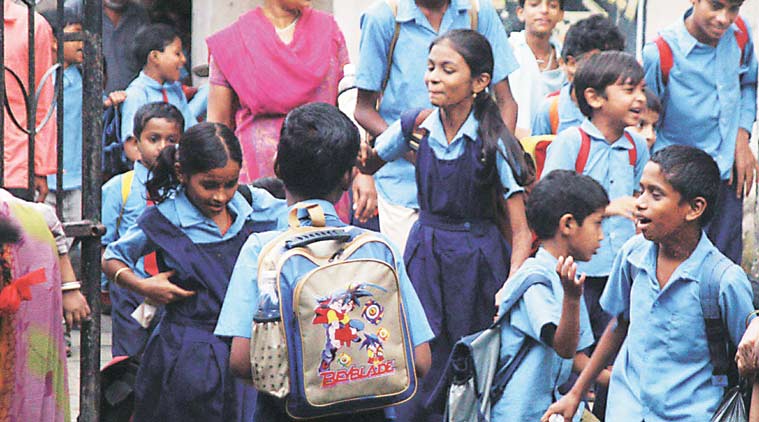Stay updated with the latest - Click here to follow us on Instagram
District Information System for Education data : 37.27% teachers in state’s primary, upper primary schools not even graduates
Figures reveal 1,53,329 teachers out of 4,11,378 in the state’s rural schools do not have a graduate degree.
 Earlier, the basic minimum qualification used to be Class 7 also, so some teachers who are not higher secondary must have been appointed as per the basic qualification that existed during their appointment in the teaching job and they must be people who are yet to retire.
Earlier, the basic minimum qualification used to be Class 7 also, so some teachers who are not higher secondary must have been appointed as per the basic qualification that existed during their appointment in the teaching job and they must be people who are yet to retire.
AN estimated 37.27 per cent teachers at primary and upper-primary levels in Maharashtra are not even graduates, according to the 2014-15 data of the District Information System for Education (DISE) for elementary education in rural India by the National University of Educational Planning and Administration (NEUPA), Delhi.
Figures reveal 1,53,329 teachers out of 4,11,378 in the state’s rural schools do not have a graduate degree.
This includes 1,390 teachers who are below secondary, 63,745 who have passed secondary and 88,194 who have passed higher secondary in rural schools across primary and upper primary. The national average is 33 per cent.
Further, the percentage distribution of teachers in rural schools who received in-service training, including contractual teachers in rural schools, is 19.06 per cent, while it is 7.62 per cent for urban schools. The corresponding national average are 20.63 per cent and 10.43 per cent.
“According to the Right of Children to Free and Compulsory Education (RTE) Act, one should have graduate teachers in upper primary schools, while in primary schools, we can have higher secondary teachers.
Earlier, the basic minimum qualification used to be Class 7 also, so some teachers who are not higher secondary must have been appointed as per
the basic qualification that existed during their appointment in the teaching job and they must be people who are yet to retire.
It has changed from time to time and, as and when we got more educated people, we have started inducting teachers with higher qualification,” said Nand Kumar, Principal Secretary (school education).
“Justice is not being done to the students. There is very poor quality coming for DEd. For example, say if I interview 100 people for DEd, just one or two will be satisfactory. At least those who are graduates are much better. The problem is, the ones going for the teaching profession are often those who get the minimum percentage, i.e. 35-45 per cent. Though salaries are much better now, good students are somehow not opting for teaching as a career. Further, the DEd colleges themselves are not up to the mark and their teaching is outdated,” said Rohit Bhat, principal of Childrens’ Academy, Kandivali.
P Selvaraj, principal of Kendriya Vidyalaya No-I, Colaba, said while educational institutes have mushroomed, quality has suffered. “Also, those who excel in academics are mostly not taking interest in academics and teaching as a profession. They need to come forward,” he added.
Others states, which have more than one lakh teachers in their rural schools and fare worse than Maharashtra, are Karnataka (81.82 per cent), Gujarat (61.47 per cent), Assam (55.99 per cent), Bihar (48.84 per cent) and Odisha (43.18 per cent). Some of the states that have over one lakh teachers and are better positioned than Maharashtra include West Bengal (34.10 per cent), Jharkhand (32.98 per cent), Kerala (32.90 per cent), Madhya Pradesh (31.76 per cent) and Chattisgarh (27.05 per cent), among others.







